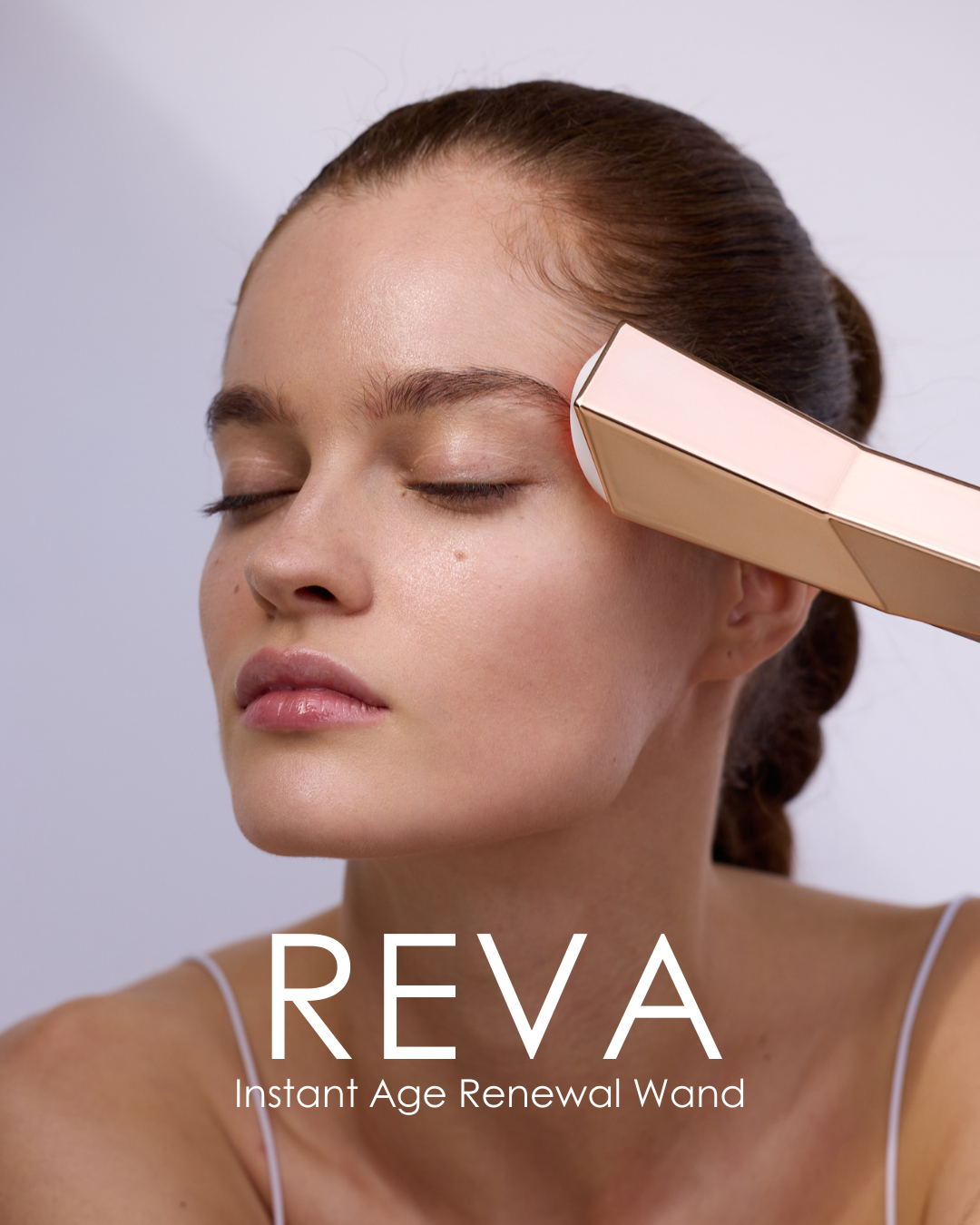
EVERYTHING YOU NEED TO KNOW ABOUT ULTRASONIC SKIN SCRUBBERS
IN THIS ARTICLE:
- 01 How It Works
- 02 What Are The Benefits of an Ultrasonic Skin Scrubber
- 03 Tried & tested: Ultrasonic Skin Scrubber
- 04 How Often Should You Use an Ultrasonic Skin Scrubber
- 05 Is An Ultrasonic Skin Scrubber Worth It
Regular and proper face washing is the crucial first step in achieving healthier skin. Experts recommend washing your face twice a day, once in the morning and once before going to bed. The right way to wash can be a little tricky for some as it sits somewhere in between light cleansing and over-scrubbing. You’ll want to remove as much excess oil and debris as you can without damaging the skin barrier by stripping away its natural oils.
Master facial washing with a little help from an ultrasonic skin scrubber, also known as a metal device to deeply unclog pores and cleanse the skin.
What Is An Ultrasonic Skin Scrubber?
|
DEFINITION An ultrasonic skin scrubber or skin spatula deep cleanses pores using ultrasonic sound waves (or ultrasound) to loosen excess sebum and stubborn dirt |
How It Works

Ultrasonic scrubbers utilize ultrasound or high-frequency vibrations, the same technology used in sonography or ultrasound imaging. For cosmetic use, the ultrasonic scrubber is usually made up of a handle and a metal head that emits high-frequency vibrations. These vibrations loosen dead skin and dirt, extract whiteheads and blackheads, and squeeze out excess oil from the pores. It does all of these while sloughing away debris along the way. To effectively do this, most ultrasonic devices are equipped to deliver 28,000 to 30,000 vibrations per second.
Skin scrubbing using an ultrasonic device is the gentlest way to exfoliate the skin. It’s non-abrasive and non-damaging to the skin barrier. Unlike other harsh exfoliation procedures, ultrasonic scrubbing does not leave the skin red and irritated, which makes it suitable for individuals with sensitive and inflamed skin.
What Are The Benefits of an Ultrasonic Skin Scrubber
Exfoliating with an ultrasonic skin scrubber does what normal face washing can’t do - remove blackheads, whiteheads, oil-clogging, and other stubborn dirt. This procedure creates a blank canvas, a clean slate of skin ready to drink up nutrients from your favorite skincare products. Below are the essential benefits of ultrasonic scrubbing:
- Deep pore cleansing - dissolves impurities that can cause breakouts and blemishes
- Gentle exfoliation - non-abrasive exfoliation that will not damage capillaries and irritate the skin
- Minimizes pore size - clean pores shrink to their normal size after scrubbing
- Smoother skin texture - scrubbing removes impurities along its path revealing a smoother complexion
- Evens out skin tone - exfoliating helps accelerate cell renewal to reveal brighter skin
- Better skin nourishment - clean, decongested pores absorb nutrients better
Tried and Tested: Ultrasonic Skin Scrubber

Planning to purchase your first ultrasonic skin spatula? Project E Beaty’s Wireless Ultrasonic Skin Care Scrubber effectively rids the skin of makeup residue, dust particles, debris, dead skin cells, and other impurities in preparation for nourishment. This type of skin spatula is a gentle exfoliator suitable for sensitive or problematic skin that doesn’t respond well to other types of exfoliation. It uses two treatment methods: desincrustation and iontophoresis.
The first step is desincrustation, a process wherein sebum and keratin are emulsified for easier disposal. Use of the scrubber deep cleanses pores by loosening and softening gunk and debris, so it's easier to take them out. It helps in the extraction of blackheads, whiteheads, and acne-causing dirt. This helps prepare for when you are layering skincare products in your routine.
Ultrasonic skin scrubbing also helps the skin to absorb nutrients more effectively. The second step in ultrasonic skin scrubbing involves iontophoresis or the delivery of nutrients deep into the layers of skin. Moving the flat side of the spatula against the skin in slow fluid motions helps skincare products penetrate better. The ultrasonic vibrations give the skin an absorption boost, an effective delivery system that penetrates the skin along with nutrients present in skin care products.
How Often Should You Use an Ultrasonic Skin Scrubber

This skin spatula uses safe and effective ultrasonic sound waves or high-frequency vibrations to gently exfoliate dirt and debris from the pores. But just like any type of exfoliation, ultrasonic skin scrubbers are not recommended for daily use. It is best to do ultrasonic scrubbing once a day, for two or three times a week. Simply adjust the frequency of use based on your skin’s reaction. Reduce to once or twice a week once you start noticing favorable results.
Is An Ultrasonic Skin Scrubber Worth It
When it comes to facial washing, the ultrasonic skin scrubber provides the right balance of squeaky clean pores and an intact skin barrier. It's great for all skin types, tones, and textures; the gentle exfoliating action is safe and effective even on the most sensitive or problematic skin type. Choosing the best device and following the instructions carefully should help you get the most out of every cleaning session. Ultrasonic scrubbing does not involve chemicals, has no downtime, and is virtually painless - just simple and effective cleansing down to the pore.
 written by Sophie Flair
written by Sophie Flair
Reference:
1. [https://www.7ewellness.com/blogs/infuse-your-spa/galvanic-vs-micr](https://www.7ewellness.com/blogs/infuse-your-spa/galvanic-vs-micr)
2. Alvarez M, Mertz M, Smerbeck V, Eaglstein H. The healing of superficial skin wounds is stimulated by external electrical current.*J Invest Dermatol*. 1983;81:144–148.
3. Brown M, McDonnel M, Menton D. Electrical stimulation effects on cutaneous wound healing in rabbits.*Phys Ther.* 1988;68:955–960.
4. Weiss DS, Eaglstein WH, Falanga V. Exogenous electric current reduces the formation of hypertrophic scars.*J Dermatol Surg Oncol.* 1989;15:1272–1275.
5. Bogie KM, Reger SI, Levine SP, Sahgal V. Electrical stimulation for pressure sore prevention and wound healing.*Assist Technol.* 2000;12:50–66.














Leave a comment
This site is protected by hCaptcha and the hCaptcha Privacy Policy and Terms of Service apply.